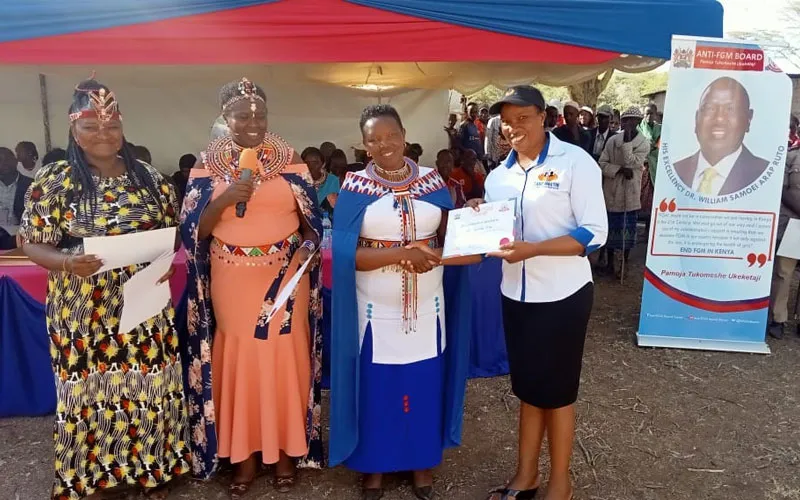Nyahururu, 23 April, 2023 / 8:55 pm (ACI Africa).
An official of St. Martin Catholic Social Apostolate (CSA), an entity with the mission “to strengthen community capacity to care for and empower vulnerable people in mutually transformative relationships” in Kenya’s Catholic Diocese of Nyahururu is calling for “everyone’s hand in fighting” against the practice of Female Genital Mutilation (FGM).
In an interview with ACI Africa, the coordinator of anti-FGM Campaign at St. Martin CSA said the practice is still rampant in Laikipia County that is covered by Nyahururu Diocese, because not everyone has embraced the goodwill to end it.
“If everyone can take the same kind of effort and goodwill, including the elders, political and religious leaders, and put their foot forward, we can end FGM,” Esther Maina told ACI Africa on April 14.
Ms. Maina said that the initiative to end the practice targets remote communities in Kenya’s Laikipia County because it is where FGM is not only rampant but also culturally and socially acceptable among the natives, requiring “everyone’s hand in fighting it.”
Ending the practice is challenging because it is passed on from one generation to another, she said, adding that residents embrace it for fear of being considered outcasts.








